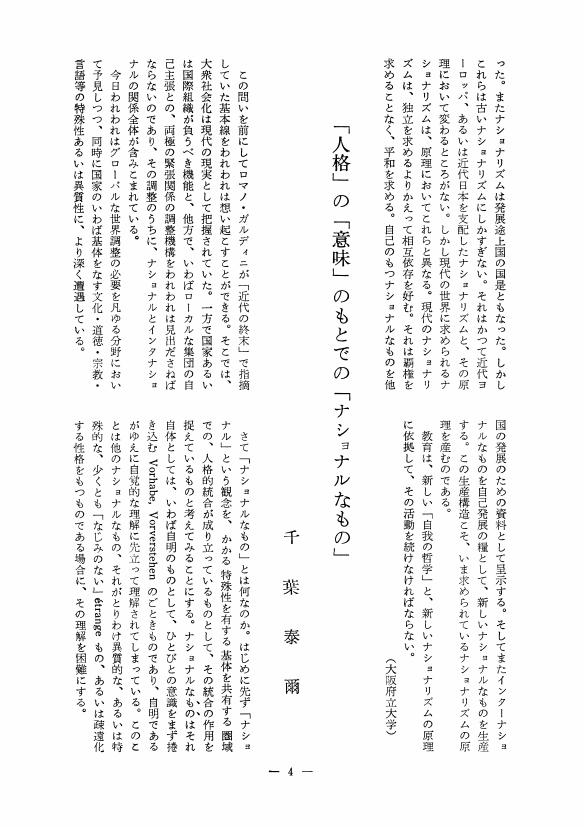1 0 0 0 OA 「人格」の「意味」のもとでの「ナショナルなもの」
- 著者
- 千葉 泰爾
- 出版者
- 教育哲学会
- 雑誌
- 教育哲学研究 (ISSN:03873153)
- 巻号頁・発行日
- vol.1982, no.45, pp.4-7, 1982-05-15 (Released:2010-01-22)
1 0 0 0 OA キルケゴールにおける実存伝達の弁証法
- 著者
- 千葉 泰爾
- 出版者
- 教育哲学会
- 雑誌
- 教育哲学研究 (ISSN:03873153)
- 巻号頁・発行日
- vol.1970, no.22, pp.20-36, 1970-10-10 (Released:2010-01-22)
- 参考文献数
- 51
The nature of philosophical expression in Kierkegard's works can in one word be characterised as being “subjunctive”. The reason is that the existential transmission aims at subjectively duplicating between the real subjects knowledge through the mediation of one's own reality. This is an appeal (Appell) which aims at real self becoming subjectively engaged and differs from transmitting directly an objective and fixed knowledge. The transmission, therefore, produces between two different deings this situation of appeal and aims at making the partner aware (aufmerksam zu machen) of reality. The center of this is the ethical transmission. This leads to bringing out the ethical potentiality hidden in the partner, and directs him in his effort toward realizing his own true self. The goal of the ethical transmission is the awakening of the existential pathos to prove one's own true nature, - this is the awakening towards individual existence.
